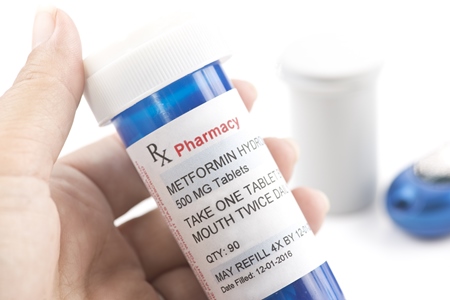Veterans who developed type 2 diabetes and who were started on monotherapy with metformin rather than a sulfonylurea had a lower risk of dying up to 6 years later — whether their kidney function was normal or mild to moderately impaired, in a new study.
The study excluded patients with severe chronic kidney disease (CKD), defined as estimated glomerular filtration rate (eGFR) < 30 mL/min/1.73 m2.
Of note, patients with moderate CKD (eGFR 30–44 mL/min/1.73m2) who received metformin as opposed to a sulfonylurea had an even greater absolute benefit than patients with better kidney function.
“This is a population in which evidence regarding the health benefits of metformin is limited,” say Zachary A Marcum, PharmD, PhD, from the University of Washington, Seattle, and colleagues in their recent paper in the Journal of General Internal Medicine.
These findings, together with results from previous studies, support the FDA’s guidance from April 2016 “to consider metformin initiation among individuals with an eGFR of 45–59 mL/min/ 1.73 m2 [mild CKD]” and suggests that “metformin initiation may be beneficial among persons” with even worse kidney function (ie, moderate CKD), they note.
“What we’re seeing here is further evidence of metformin’s benefit in individuals with diabetes and CKD,” Dr Marcum told Medscape Medical News.
However, “it’s too soon to say that the FDA should change” the labeling requirement for metformin, since the current findings need to be replicated in other populations,” he added.
Mortality With Metformin vs Sulfonylurea in Diabetes Plus CKD
When metformin was approved by the FDA in 1995, it was contraindicated in patients with higher serum creatinine levels, due to fears of lactic-acid acidosis, which had been seen with another drug in the same class, phenformin, Dr Marcum and colleagues explain.

